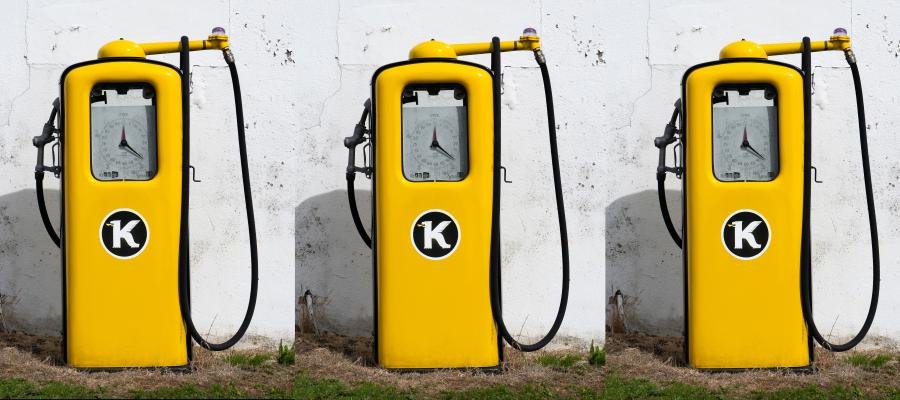Walter Benjamin and the Re-Enchanted World
Jul 12, 2020Walter Benjamin was a German Jewish critical theorist, essayist, and philosopher who died tragically during the Second World War.

Has the world lost its magic? If it has, is that a bad thing? And if so, can anything be done about it? In this week's show, we're discussing Walter Benjamin, the German-Jewish thinker from the early 20th century, who had fascinating things to say about all of this.
Benjamin took seriously Max Weber’s claim that “the fate of our times is characterized by rationalization and intellectualization and, above all, by the ‘disenchantment of the world.’” Modernity is, above all, a time of disenchantment. These days a rainbow isn’t a god, as it was for the ancient Greeks, or a sign of God’s promise, as it was for the ancient Hebrews; now it’s just a bit of prismatic refraction, easily explained by science. There’s no mystery or wonder in the world around us any more.
The sacred has increasingly retreated not just from the natural world but also from the public sphere (law, politics, education, marriage). Even in the world of art, things have changed: now that any of us can hang a copy of the Mona Lisa on our wall, there’s no magical “aura” attaching to the original.
In addition, we’re living spiritually impoverished lives, crushed beneath capitalism, bureaucracy, and efficiency. We’re alienated, in Marx’s sense. Modern work conditions have a way of turning us into things, functions, cogs in a machine—if not ourselves machines, automata, merely going through the motions of our lives. We’ve lost the capacity to have full-blown experience (“Erfahrung”), and are reduced to simply sleepwalking through our existence.
Benjamin would probably have agreed with Theodor Adorno that “to be still able to perceive anything at all, regardless of its quality, replaces happiness, since omnipotent quantification has taken away the possibility of perception itself.” As for history, well, it’s just “one single catastrophe which keeps piling wreckage upon wreckage”—and there’s no sign of things changing any time soon. (Tragically, Benjamin took his own life in 1940 when it seemed escape from Nazi-occupied France was going to be impossible.)
That’s a bleak vision of modern life, but Benjamin does not stop there. First of all, disenchantment isn’t always a bad thing. There’s need to elaborate on the advantages of keeping religion out of law and politics, but let’s just mention Benjamin’s brilliant and influential thoughts about art: the decline of its “aura” had the advantage of making it more democratic. Anyone can own that Mona Lisa poster; anyone can see a Chaplin movie; anyone can even become the co-creator of a work of art, if it’s done right. A good artwork, Benjamin said, “leads consumers to production.” What’s more—and here Benjamin is drawing on Bertolt Brecht—de-auratized art can be politically efficacious, waking us up out of our sleepwalking state.
Second, modernity isn’t completely disenchanted. One small village still holds out against the invaders: the village of secular re-enchantment. Here the Surrealists, with their reading of Freud, showed the way. Amid the generalized impoverishment of experience, pockets of wonder still exist—indeed new pockets of wonder, generated by the very modernity that’s done all the damage.
Take the gas pumps we use unthinkingly every time we fill our tank: these become sources of “profane illumination” once we realize, as Louis Aragon did, that they look like strange living creatures, one-eyed, one-armed gods with numbers for features. Whoever designed them chose that shape because it felt right, and it felt right because their unconscious told them so. The built environment is haunted by the ghost of collective hopes and fears, hopes and fears that we unconsciously pour into everything we make. This is the source of the “everyday miracles” that are still on offer to us. Everything has hidden depths, speaks a secret language, is more than it appears. We may have banished Iris, but we did so only to forge new gods.
In an optimistic mood, then, Benjamin might perhaps have said that Surrealism can keep us going until, thanks in part to the work done by avant-garde art, we find the collective political will to change the world. And if all else failed, then for Benjamin, who had a mystical side to him, there was always a different kind of hope: “every second [is] the small gateway in time through which the Messiah might enter.”
Was Benjamin right? Can avant-garde art console and save us? If not, can something else—something unimaginable—ride to our rescue? Tune into this week's show with guest Margaret Cohen, author of Profane Illumination: Walter Benjamin and the Paris of Surrealist Revolution.
Image by W.carter from Wikimedia Commons
Comments (1)
charllykorpa
Sunday, March 31, 2024 -- 9:03 PM
In this thought-provokingIn this thought-provoking discussion, the erosion of magic and enchantment in the modern world is scrutinized through the los angeles moving company lens of Walter Benjamin's insights. Benjamin contemplates Max Weber's notion of the "disenchantment of the world" in our rationalized age, where phenomena like rainbows lose their mystical significance and become mere scientific phenomena.